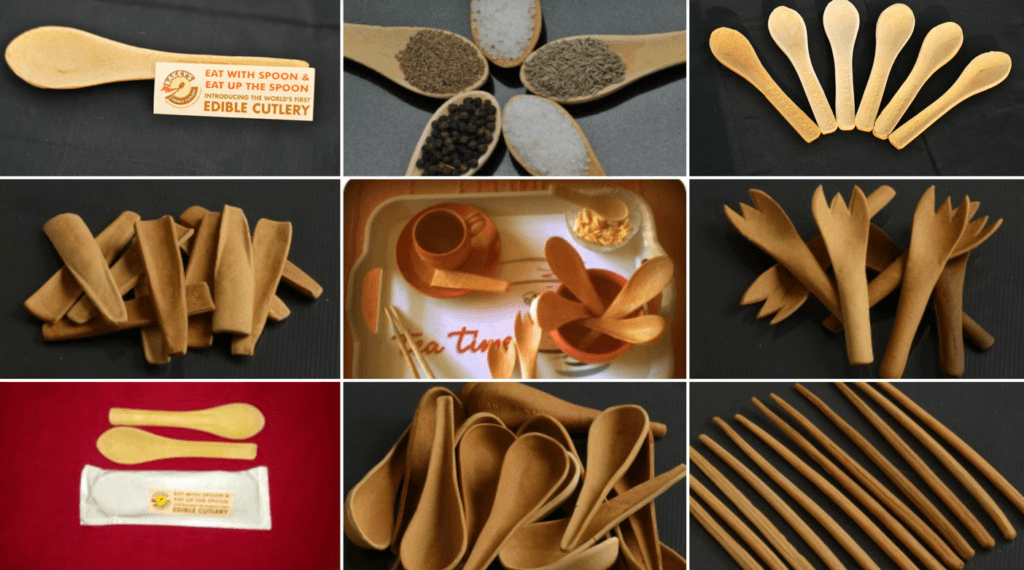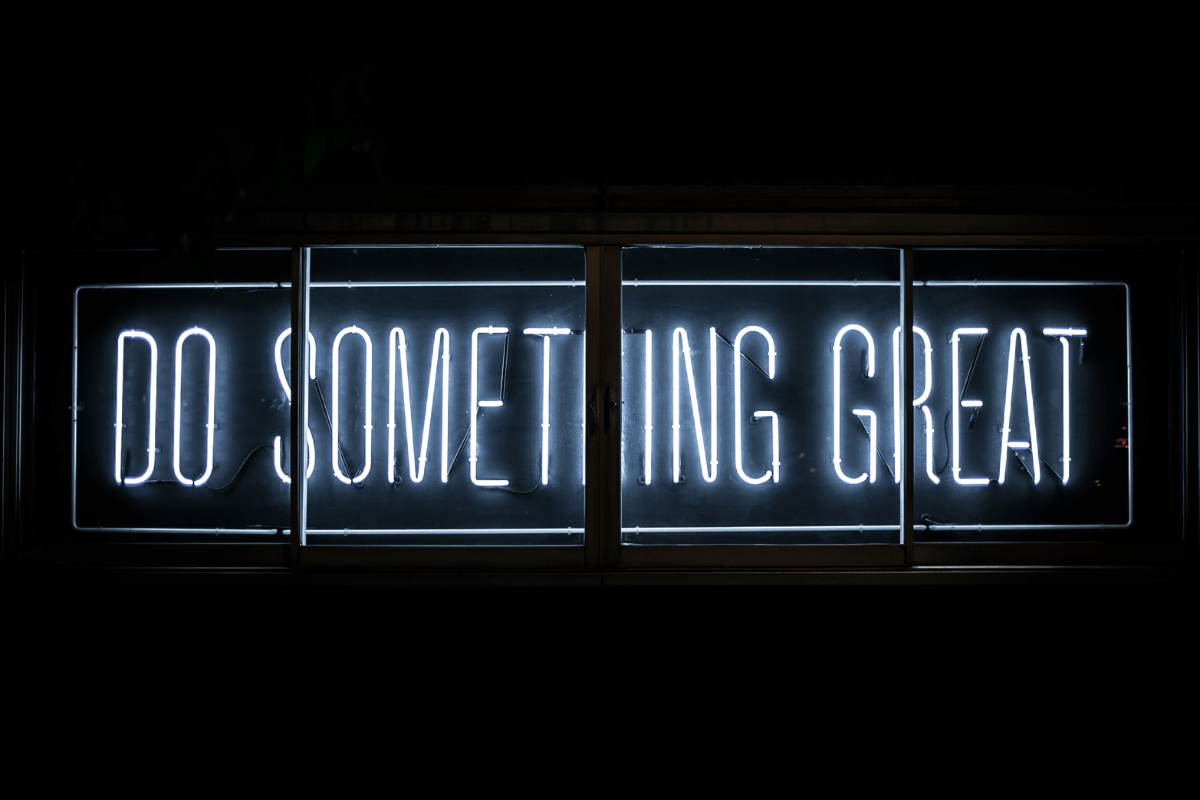How do you feel about having a takeaway lunch that doesn’t trash the world around you with non-recyclable packaging, cutlery, plates? Can you forget ‘conventional’ plastic? Can you eat ethically sourced food from unethically sourced plates?
Lots of questions, but luckily we’ve got some tasty answers.
Our selection of innovative or just common sense sustainable products and services will hardly find a place in mainstream news programs. Good ‘plastic-free’ news should be celebrated accordingly in a society in dire need of sustainable long-term solutions to its waste problem.
So, let’s talk about people and businesses trying to reduce plastic waste without minimizing utility and comfort. Before you reach for another disposable spoon, please check them out.
Eat Up

The Indian company Bakeys Edible Cutlery is reinventing the idiom ‘eating up’. For the first time in history, parents telling their children to eat everything will be taken literally with these sorghum+rice+wheat flours 100% vegan spoons and forks.
This is a waste free alternative to disposable plastic, wood cutlery, and bamboo chopsticks. There is huge potential to prevent plastic waste, as the creators of this smart and yummy product want you to understand. Not to mention that ever before has cutlery came with nutritional information in attach.
Six Pack Rings
Most of these plastic six-pack rings that hold canned beverages of your choice end up in the ocean and pose a serious threat to wildlife. That’s why a team of experts at We Believers, from New York, decided to tackle the issue, and designed edible, compostable, biodegradable six-packings.
Saltwater Brewery, a small craft beer brand in Florida, jumped on the sustainability boat. There’s an even better aspect to this story: the edible rings are about 80 percent barley and wheat residue from the beer brewing process. We’re talking full circle process that ends up feeding the animals instead of killing them. Everybody wins.
Compostable Plates
No, you’re not supposed to eat them at the end of the meal, but composting them is much better than throwing them away in a garbage bin.
Leaf Republic is making plates out of green leaves stitched together with fibers from palm leaves that disintegrate and decompose within 28 days into the compost pile. Renewable and biodegradable, this is another smart addition to the plastic-waste-free table. It is as if leaves are taking a short break on your table before becoming 100% healthy compost. Talking about a life — and afterlife — well lived.
In the same vein, we discovered Biotrem’s tableware made from wheat bran (husk) which is a by-product of the flour production process. Farmers use it mainly as forage supplement, but huge amounts of bran are wasted. What Biotrem uses is semi-waste, not suitable for human consumption, but biodegradable. It composts in just 30 days. However, if stored under optimal conditions, the husk set easily last for years.
The Wholeleaf Co is another company using palm leaves in the production of disposable plates. The Areca Palm trees of India are harvested for their fruit, the betel nut, and shed their fronds naturally. But these smart humans pick the fronds up and turn them into super-strong palm leaf plates, bowls, and platters. Home compostable, they hold pretty much any delicacy of any consistency served out there. Pure and simple.
Mushroom Based Packaging
Those up to date on sustainable design already know that seaweed is one of the first raw materials considered by many producers these days. But how do you feel about mushrooms? A couple of years ago there was a lot of talk about Ikea and their search for sustainable packaging solutions. They were planning to use biodegradable mycelium (roots of mushrooms) packaging as part of the company’s efforts to reduce waste and increase recycling.
Ecovative came to the fore, and by the look of their projects, they are all for trading harmful materials such as polystyrene for the biodegradable mycelium compound. The plans are in the early stages. Unless you recently visited Ikea and can confirm they use the mushroom packs already. By the way, unverified sources tell us other smaller companies already do it. To be continued.
Algae & Shrimp Shells
That’s not the last fusion cuisine fad, these are two other raw materials taken into consideration in the production of disposable tableware. Some projects are in the early stages of development, not commercially available yet, like this biodegradable plastic made out of shrimp shells discarded by restaurants. Or this red algae powder and water turned into biodegradable bottles by a product design student in Iceland.
What Next?
Sustainability might gain some ground in product design, but it’s hard to imagine these positive steps having the needed impact without sustainable consumers. We have the power to decide what’s on the plate (and in the plate!), what products to refuse, what to invest in and how to be aware of our impact on the world we leave behind.
After all, we have landed on the Moon, how hard can it be to clean up our act here on Earth? We can only hope that the above-mentioned initiatives will expand your appetite for sustainable innovation and design. Fixing the waste problem should be a priority for a species that is drowning in its own garbage. I mean, I wouldn’t mind eating my coffee from this cup if I forget my “I’m not a paper cup” ceramic one at home. Would you? Bon appétit!
NOTE: This article was first published on Ecommerce Platforms



Leave a Reply